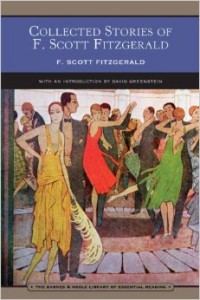
Although it is my favorite book and has influenced my writing and my career, I am not even sure I know its name. The book was a collection of F. Scott Fitzgerald’s short stories, probably published in the ‘50s, contained under some imaginative title like The Collected Stories of F. Scott Fitzgerald.
Whatever it was, it blew me away. Still does. I can trace my writing career—or at least the misguided desire to become a fiction writer—to a single story: “Diamond As Big As the Ritz,” about a boy who attends the country’s most exclusive private school, then visits his roommate’s family whose property sits on top of the largest diamond on earth. He soon learns that, having tasted of the knowledge of the diamond, he must now be killed. And it goes from there.
“Diamond” was actually more of a hallucination than anything else, and a departure from most of his better work, which was deeply engaged with issues of the moment. “May Day,” on the other hand, one of the finest stories ever written, engages both socially and politically with America just after the end of World War II. “The Ice Palace,” about the collision of old southern society with the industrial north, is flat astonishing in its evocation of American culture. There were so many great works, including a few of the wonderful “Basil and Josephine” stories.
I read them all, over and over again. I still find them fresh. I have always thought that Fitzgerald was a flawed novelist. His novels were at best mediocre. The Great Gatsby is not a novel, by the way; it’s a longish short story that publishers cheated into a novella. It was in his stories that he was at his best as an observer of American culture. There is no one who ever wrote such drippingly romantic stuff that was also socially and culturally dead on. Thus, inspired by F. Scott, I decided not to become a fiction writer. And the rest is literally history.

